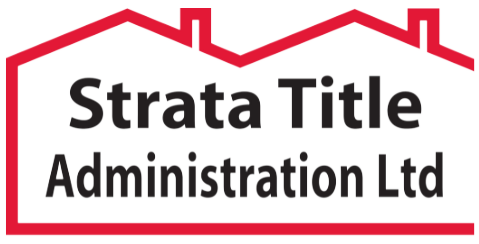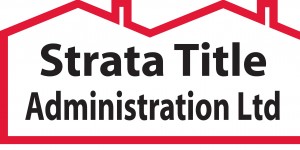When Will I Be Notified About An Annual General Meeting?
At least three weeks before the date of the Annual General Meeting of your Body Corporate, owners will receive a formal notice from the Body Corporate giving the time, date and venue for the meeting and asking owners to nominate people for the position of Chairperson of the Body Corporate or to be Committee members.
Owners will also be asked to nominate items of general business and proposed resolutions they would like the Body Corporate to consider at the Annual General Meeting.
Is There An Agenda For The Annual General Meeting?
Yes. At least two weeks before the Annual General Meeting, the Body Corporate will send the agenda to each owner, along with a proxy form, a postal voting form, the annual financial statements, an audit certificate, competitive insurance quotations,a proposed budget and any other relevant documents such as a building manager’s report or Committee report.
What Is Discussed At The Annual General Meeting?
Agenda items discussed at an Annual General Meeting include:
- The appointment of a Chairperson of the Body Corporate, and a Committee
- The Body Corporate’s financial statements
- The Body Corporate’s audit procedure
- The renewal of the Body Corporate’s insurance policy
- Security
- Maintenance issues
- A budget of projected expenditure for the next 12 months, on which the levies for the next year are based
Who Can Vote At An Annual General Meeting?
The right of an owner to vote at a Body Corporate meeting, and the methods of voting, are set out in the Unit Titles Regulations 2011. An owner who has not paid any part of the Body Corporate levy, or other amounts due for their unit to the Body Corporate, is not allowed to vote.
Any vote at a meeting of the Body Corporate may be exercised by the owner in person, by postal vote, or by proxy. All proxy votes must be made in writing using the prescribed form. The majority of resolutions are passed by a simple majority of over 50% of eligible voters, although some decisions require a 75% majority to pass known as a special resolution. There are also special provisions which apply when a Body Corporate wishes to vote on a resolution that requires a unanimous decision.
The legislation sets out two alternative means of voting. The first is that the owner of each principal unit has one vote. Alternatively, should any owner request the vote be on the basis of a “poll”, the vote is based on the Ownership Interest of the principal units and accessory units owned by each person. This means that an owner of a unit(s) that has a higher Ownership Interest, compared to all other units in the development, has a vote that carries more value.
What Is A Quorum?
Each meeting of your Body Corporate can pass valid resolutions only if it has a quorum, which is defined under the Unit Titles Act 2010 as being 25% of principal units. An owner who has not paid any part of the Body Corporate levy, or other amounts due for their unit to the Body Corporate, is not allowed to vote and does not form part of the calculation to determine the quorum.
What Is A Proxy Form?
A proxy form lets you vote without being present, by authorising other attendees to vote in your absence. If you can’t attend anAnnual General Meeting, it’s important that you complete and return the proxy form so you’re represented.
Can I Vote By Post?
Yes. A postal voting form will have details of the resolutions to be considered at the Annual General Meeting with an invitation to either record your vote for or against any motion or to abstain from voting on a particular motion. This lets you be represented on the issues being considered at the Annual General Meeting, without being present or appointing a proxy.
How Is Insurance Renewed For The Body Corporate?
Several months before the Annual General Meeting, Strata will arrange for a registered valuer to prepare a reinstatement insurance valuation of all the units and common property in the Body Corporate. Strata will then forward the valuation to an independent insurance broker to gain competitive quotes for the renewal of the Body Corporate’s principal insurance policy. The quotes will be presented at the Annual General Meeting and owners will decide which insurance quotation to accept.
How Is Maintenance Taken Care Of?
All maintenance thought to be required by the Body Corporate during the next year will be discussed at the Annual General Meeting, so a realistic sum can be budgeted for the Body Corporate’s maintenance and optional Long-Term Maintenance and Contingency Funds.
Maintenance may include repainting the exterior of the units, replacing signs or re-concreting a driveway. If your Body Corporate is a multi-level building, the maintenance discussion may include the need to upgrade the building’s security or fire protection system. There is a requirement under the Unit Titles Act 2010 to have a Long-Term Maintenance Plan and a method of funding the plan.
Who Sets The Budget?
The Body Corporate makes a decision about the next year’s budget, informed by Strata’s recommendations. After discussing the financial statements for the last financial year, and considering any maintenance issues, property owners will consider what needs to be included in the Body Corporate’s budget for the next 12 months.
Strata will provide all owners at the meeting with data showing the previous year’s budget, actual expenditure, and a proposed budget for the forthcoming year. Owners will discuss this and decide on a Body Corporate budget for its next year. The due date of levy payments to fund the budget will also be discussed and agreed on by the Body Corporate.
What Is ‘General Business’ At An Annual General Meeting?
This is the last item on the agenda and provides an opportunity for owners to discuss any other issues of concern. Motions submitted to a general meeting must be written in the agenda so all owners know the subjects to be raised.
Will There Be Minutes Of An Annual General Meeting?
Yes. After the Annual General Meeting, Strata prepares the minutes and sends these to all owners, along with an invoice for the annual levy for their unit and any other documentation supporting the minutes.
What Happens With My Levy Invoice?
The levy invoice is a bill to each owner for their share of the Body Corporate’s budget. Your levy must be paid by the due date so the Body Corporate can pay its creditors. The Body Corporate’s insurance premium, valuation fee, and administration costs are paid upon receipt of levies. Throughout the remainder of the Body Corporate’s year, invoices for items such as common area electricity, lawn mowing, water and wastewater charges are paid as they fall due.

